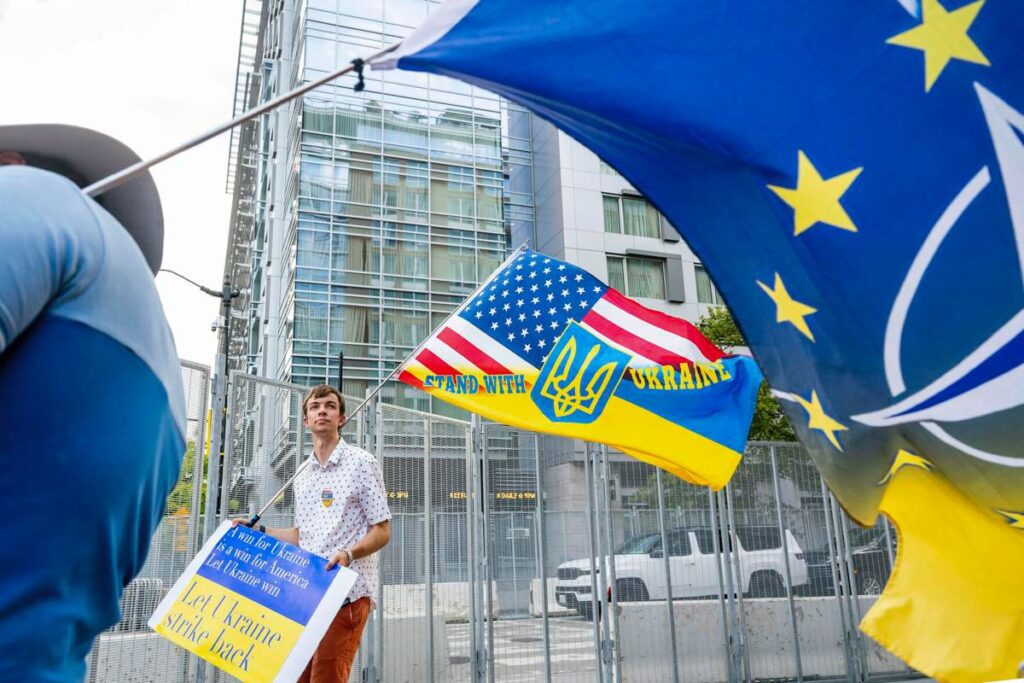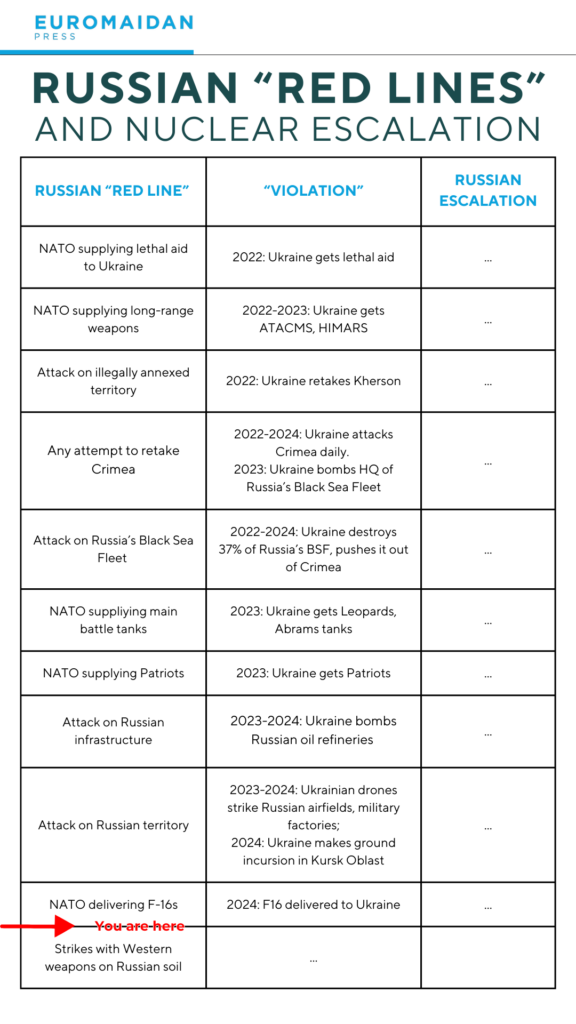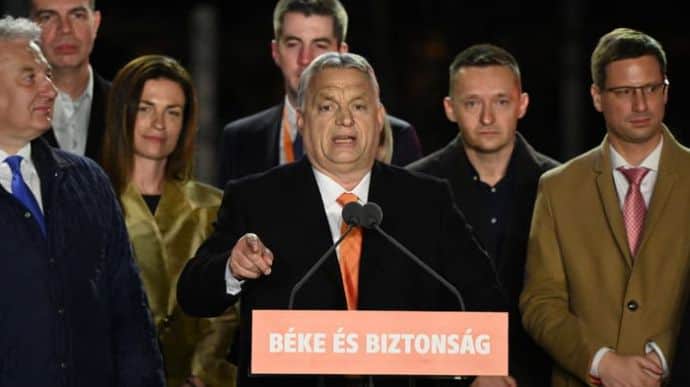The dark truth behind NATO’s “fear of Russian escalation”
NATO frets over poking the Russian bear while its own paper tiger growls. Eastern allies demand action as Western powers reveal an Alliance scared of its own shadow.


The famous words – “We have nothing to fear but fear itself” – were spoken by President Franklin Roosevelt and have captured the minds and hearts of millions.
Today, the phrase captures the essence of Russian reflexive control tactics and its decades-long war in the cognitive space. It has done its uttermost to instil fear in our minds and stop us from acting according to our core values and principles.
Fear, however, is a beast that needs constant feeding.
On 1 September, the Russian Deputy Foreign Minister, Sergei Ryabkov, did just that. He fed the beast. “Russia will make changes to its doctrine on the use of nuclear weapons in response to what it regards as Western escalation in the war in Ukraine,” he said.
Ryabkov suggested that the process depends on the West’s decision on Ukraine’s use of Western-made weapons against targets on Russian territory.
Three days later, Foreign Minister Sergei Lavrov said that the US “shouldn’t joke about Russia’s red lines.” He said the US was losing sight of the mutual deterrence that had underpinned the balance of security between Moscow and Washington since the Cold War, and that this was dangerous. Lavrov said the US knew Russia’s red lines but “was wrong if it believed the consequences of any escalation of the war in Ukraine would be suffered mainly by Europe.”
Fear of escalation is a bad reason for reluctance to act
Fear of escalation is being stated as the reason why US and European defense aid to Ukraine is slow, incremental, and often reluctant. This is the reason why NATO is unwilling to act according to its previously declared ambition: to stop ongoing conflicts that affect Alliance security.
The US and some European countries argue restraint when discussing support for Ukraine. They argue against providing certain military capabilities, to allow Ukraine to strike Russian territory or getting directly involved out of fear that the so-called “Russia-Ukraine War” might escalate into a conflict between Russia and NATO.
The argument does, however, not stand closer scrutiny.
While NATO speaks with one voice, it is also a consensus-based organization. Its policy, therefore, is based on compromises reflecting the views of its “weakest links”. They do not even necessarily reflect the majority views as all members can veto a decision that runs contrary to their policy or national interests.
Member states have vastly different perspectives on the scale and scope of the war and what is needed to end it. Past and present debates show that the countries that know Russia the best – the countries that remember occupation and oppression – argue for NATO to do far more. They do not buy into the fears fronted by some to reinforce the already Russian-induced fears.
This is reflected in the ongoing deliberations about training missions in Ukraine, the calls to lift restrictions on the use of Western-made weapons against targets in Russia, and the debate about whether to shoot down Russian missiles and drones over Ukraine or not.
More telling, during the spring of 2022, several countries argued in favor of greater NATO involvement in Ukraine. Poland, the Czech Republic, and Slovenia put forward a 10-point plan to save Ukraine. The Polish Prime Minister stressed that if this does not stop the war, then we must go further and protect Ukrainians.
The discord is also reflected in the US and German displeasure over the allies’ doing more than they envisioned, like donating main battle tanks, cruise missiles, and F-16s to Ukraine.
The need for consensus within the Alliance has created two contradictory “realities.” One is that NATO involvement will trigger an escalation of the so-called “Russia-Ukraine war,” and the other is that the war is already seen as a “Russia-Europe war,” and failure to stop Russia in Ukraine will escalate the war further.
The contradictions of the “fear of Russian escalation” argument
1. Russia controls the escalation of the war, not the West
Russia is able to dictate the tempo of the war and lock adversaries into responding to its moves. It has turned peace into crisis, conflict, and war despite Western restraints.
Despite Western decade-long policy of restraint, including its refusal to help Ukraine reestablish deterrence in 2014-22, Russia has chosen to escalate the war. The escalation goes beyond its full-scale invasion of Ukraine and includes its (and its allies) spread of chaos in the Middle East, its increased malignant activities on NATO territory, its support of right-wing political parties across Europe, and its weaponizing of food. It has not least built a coalition of autocracies (Iran, North Korea, and China) that supports its efforts to defeat Ukraine and, consequently, the West.
NATO has remained reactive throughout, being forced to respond to Russia’s constant intensification of the war. The Alliance has proven itself unable to regain the initiative as European security and stability continue to deteriorate.
However, weakness, not Western support for Ukraine, provokes further escalation. Therefore, Russia will continue to escalate the war if the West allows it.
To gain the initiative and end the war, the West must escalate, and through this achieve Russia’s de-escalation.
To gain the initiative and end the war, the West must escalate, and through this achieve Russia’s de-escalation.
We cannot argue “fear of escalation” if we continue to allow Russia to maintain escalation control. No war has ever been won by refusing to confront the aggressor.
2. Russia fears an uncontrolled escalation of the war as much as the West
Yes, Russia has escalation control and has repeatedly demonstrated its willingness to escalate the war. Nevertheless, its willingness to take risks is not unlimited.
While we all should rightfully fear the potential consequences of a confrontation between nuclear powers, we must also recognize that our enemies share the same fears. The threat of mutual destruction is just that: a threat of mutual destruction.
A world war will be no less devastating for Russia than for the West.
This is clearly demonstrated in Russia’s response to repeated breaches of its so-called “red lines.” Like the collective West, Russia is not seeking a nuclear war or a world war. Instead, it seeks to avoid losing a war it cannot otherwise win by making sure the West does not commit.

It will say anything to make the US and Europe shun direct involvement in Ukraine. President Putin has repeatedly warned the West not to cross Russia’s so-called “red line,” stressing that this would trigger an “asymmetrical, rapid and harsh response.” His threats are designed to deter and intimidate.
The notion that it will act upon its threats, however, defies reason as none of the potential scenarios are to its advantage. Russia knows that a war between nuclear powers is fraught with risks and, therefore, does not act upon Western and Ukrainian repeated violations of its so-called red lines.
3. Many politicians from countries that have experienced Russian aggression firsthand are clear that Russia’s unchecked aggression is the danger, not threats of “escalation”
When eastern or central European leaders discuss evolving threats, they signal a fear of escalation if Russia is not stopped. This contrasts with NATO’s declared “fear of escalation” if it provides Ukraine the support it needs to win.
This was made clear in a statement by Czech Foreign Minister Jan Lipavský, who recently pointed out that Russia is waging a war against the West, not against Ukraine.
As well, just days ago, the Estonian Defence Minister highlighted that Estonia has been facing hybrid attacks since 2007. He stressed that Russia’s hybrid attacks on NATO members started well before the Alliance even began discussing hybrid warfare, suggesting that Russia was testing the limits to see how far it could go before triggering Article 5 of NATO.
They are not alone in these assessments. While Western politicians continue to portray the war as a “Russia-Ukraine war,” it was always a Russia-Europe war. This is reflected in Russian strategic documents, its stated aim and objectives, threat perception, public statements and rhetoric, ultimatums, nuclear threats, and most of all, its actions.
The EU is increasingly acknowledging that its member states (most of which are also NATO members) are exposed to a Russian Hybrid war, whose malignant activities have been extensively documented. Moreover, Vladimir Putin explicitly states that the US and Europe – not Ukraine – are Russia’s enemies.
This war has been allowed to evolve unchecked in scale and scope for more than a decade already. Increasingly more Heads of State, Ministers and Chiefs of Defence express concern for the future security and stability of Europe if the present trend continues.
They stress that Russia will not stop at Ukraine’s western borders and warn about an increasing risk of military confrontation between NATO and Russia in 2 – 5 years. According to Polish Prime Minister Donald Tusk, “The continent has entered a “pre-war era” for the first time since WW II.” The Danish Prime Minister Mette Frederiksen has called on those who do not properly support Ukraine’s victory to “understand how dangerous the situation is.” In the words of the Finnish Minister of Defence, Antti Häkkänen, “There is a war going on in Ukraine for the future of the whole of Europe.”
These politicians already know that Russia will continue to escalate the war if the West allows it. They fear NATO’s inaction, not its action.
4. Not even the US intelligence believes in the nuclear Russian threats
“Western leaders should not be intimidated by Kremlin threats of nuclear escalation, the head of the CIA [, Bill Burns] said on Saturday, amid a debate over whether Anglo-French Storm Shadow missiles should be used inside Russia.” “Putin’s a bully. He’s going to continue to saber rattle from time to time,” Burns said. “We cannot afford to be intimidated by that saber-rattling… we got to be mindful of it.”
NATO’s “fear of escalation” is nothing but an excuse to remain detached
It is reasonable to assume that fear of escalation over support to Ukraine is nothing but a deflection. It helps hide the fact that the West – in the words of Lithuanian Minister of Foreign Affairs, Gabrielius Landsbergis – might be a part of the problem.
While the consequences of Russia’s war of aggression have made many NATO members face up to their fears, some have used fear as an excuse to remain detached.
There is a myriad of reasons why that is. NATO might have forgotten that it isn’t only defending territory but also who and what we are. The Alliance is meant to also protect our core values and principles, democracy, international law, and the UN Charter.
The so-called fear of escalation is used to hide discord within NATO. Once prized as a pillar of post-war stability, the Alliance now confronts serious doubts about its internal cohesion, military strength, and political willpower facing an aggressive Russia.
Fear is just an excuse for lack of commitment, for lack of military capabilities after decades of downsizing, streamlining, and failure to invest in security and defense, for empty stockpiles and the state of our Defence Industrial Base. Fear is used to buy us time as Ukraine is valiantly fighting to protect us. It is used to hide political cynicism, populism, naivety, incompetence, isolationism, a lack of leadership, and unity.
“We cannot allow Russian bombers to be better protected than Ukrainian civilians are. Let’s ask ourselves if we are being honest about how much we actually support Ukraine.” Gabrielius Landsbergis, Minister of Foreign Affairs of Lithuania, 29 August 2024
Western policy of restraint increases the risk of strategic miscalculations. If we allow Russia to believe that its nuclear “fait accompli strategy” works – that its battle of the minds continues to deter the West – we run the risk that Russia will test the strategy on NATO territory. Russia presently has no reason to believe that we will be less afraid to engage if it attacks a NATO member state. It is, therefore, of paramount importance that we prove Russia wrong in Ukraine.
To gain the initiative and end the war, the West must escalate to de-escalate. No war has ever been won by refusing to confront the aggressor.
The expressed fear of an escalation of a war that Russia continues to intensify is simply a reflection of our own moral and physical shortcomings. We should fear this; not fear itself.
Editor’s note. The opinions expressed in our Opinion section belong to their authors. Euromaidan Press’ editorial team may or may not share them.
Submit an opinion to Euromaidan Press
Related:
- NATO must abandon “Russia-Ukraine War” delusion
- Nine reasons NATO cannot afford to say “no” to Ukraine
- Europe finds its courage to stand up to Russia
- Why Ukraine’s fight is key to defeating Russia-China-North Korea alliance


